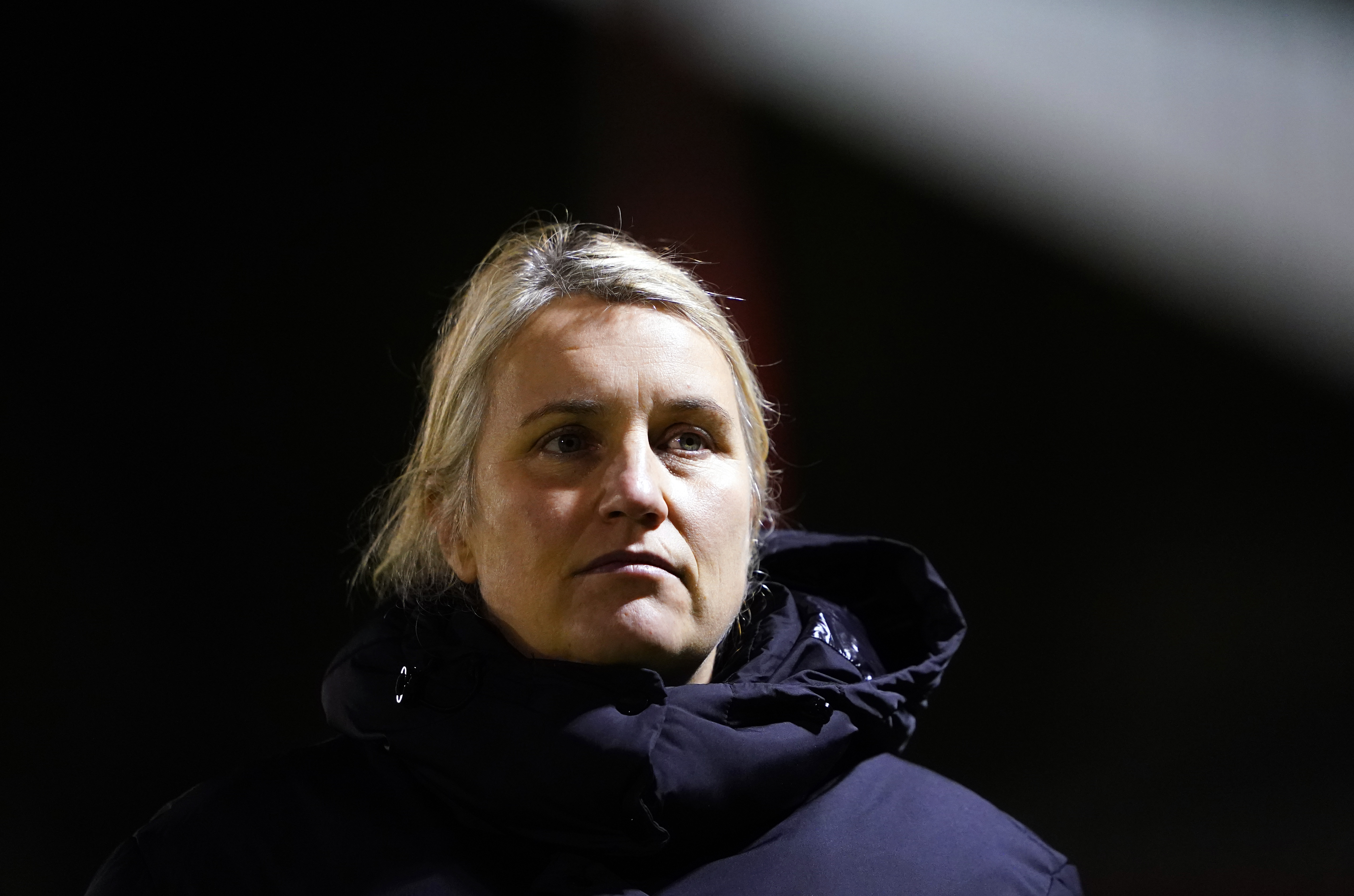Emma Hayes says Women’s Super League can benefit from Premier League ‘expertise’

The best features, fun and footballing quizzes, straight to your inbox every week.
You are now subscribed
Your newsletter sign-up was successful
Want to add more newsletters?

Five times a week
FourFourTwo Daily
Fantastic football content straight to your inbox! From the latest transfer news, quizzes, videos, features and interviews with the biggest names in the game, plus lots more.

Once a week
...And it’s LIVE!
Sign up to our FREE live football newsletter, tracking all of the biggest games available to watch on the device of your choice. Never miss a kick-off!
Join the club
Get full access to premium articles, exclusive features and a growing list of member rewards.
The Lionesses’ Euro 2022 triumph launched the Women’s Super League to the brink of a new commercial stratosphere—one, urged Emma Hayes, that now needs the Premier League to push it past the precipice.
The Blues boss, who celebrates 10 years at Chelsea on Sunday, has watched the game grow from the days when she did not even have a desk at the club to an era marked by England’s women selling out Wembley and WSL sides, including her own, playing in Premier League venues.
Willing though she was to wax nostalgic about her decade-long tenure, Hayes was more adamant that the women’s game looked ahead after a paradigm-shifting summer.
“It’s the tipping point of the last 10-12 years,” she said. “That period was the foundation being put in place. Our sport has only been professional for maybe two seasons, maybe not even that, it’s the end of that era.
One week ago today…— Chelsea FC Women (@ChelseaFCW) August 7, 2022
“That win, if it didn’t open the eyes of the Premier League it will do now.
“You know I’m a big advocate of that, because if 86,000 people are paying for tickets for that and it could have sold out two or three times over, the appetite is there. I’ve always been an advocate of the women’s game becoming a business and I think we’ve now entered that phase.”
In June, the FA announced a rebrand for the women’s top flight and Championship, dropping the ‘FA’ from the name of both leagues as part of future plans for the competitions to be under new ownership.
The best features, fun and footballing quizzes, straight to your inbox every week.
Baroness Sue Campbell, the the Football Association’s director of women’s football, confirmed in July the organisation had already received and rejected offers from private equity firms, revealing plans to move the WSL and Championship under a new interim subsidiary company that she hoped would launch in January while the board explored options.
Campbell said: “If you go to the top end of the WSL then of course their experience is the Premier League and they want more independence and more say. We respect and understand that, but we have to look after the whole game.”
We are delighted to announce that season tickets have sold out for the second consecutive year! 🤩👏— Chelsea FC Women (@ChelseaFCW) August 1, 2022
Hayes is one of the top-end bosses who advocated for more urgent action to capitalise on the accelerated momentum generated by the Lionesses’ European title run.
She said: “The next step is the league leaving the FA and going to the Premier League or an independent body and that there is a vision around the women’s game so we don’t just have single big moments – single events once every two years or once a year – that they’re every week.
“We need the expertise coming into the game. For me that is hands down the next step and I’ve been really vocal about it because you need experience. That’s not the FA’s responsibility, they don’t run leagues. It’s not their job to do that, they’re there for the national team.
“It should be in the hands [of people] who have experience [running leagues]. That’s the real legacy for me.”
Chelsea, who have already sold out season tickets ahead of chasing their fourth straight title, are one of several clubs playing marquee matches at the homes of their Premier League counterparts this season.
This is not a moment, it's a movement.— Chelsea FC Women (@ChelseaFCW) August 8, 2022
Their campaign kicks off on September 11 against West Ham at Stamford Bridge, where the Blues will be celebrating 30 years of the women’s side as well as Hayes’ 10 years of service.
It’s a pivotal moment, believes Hayes, to set up an enticing shop window – and potentially inspire a few architectural renderings.
She added: “If anyone thinks that we are going to go from 2,000 to 20,000 overnight, I don’t believe that will be the case.
“It’s an opportunity to showcase the talent, this is what you want, we’ve got the best product in our league and now is the time to sell it properly with the right support around it. It’s a great way to kick off the season.
“I still think it will be a gradual build, there will be some big events like England games, cup finals, signature events, but I still think that you’ve got to keep stabilising the sport with regular slots, become the regular feature that we have become in the calendar and work towards the gradual increases that I think will cause some of us to build bigger stadiums and move out of them.”
 Join The Club
Join The Club










